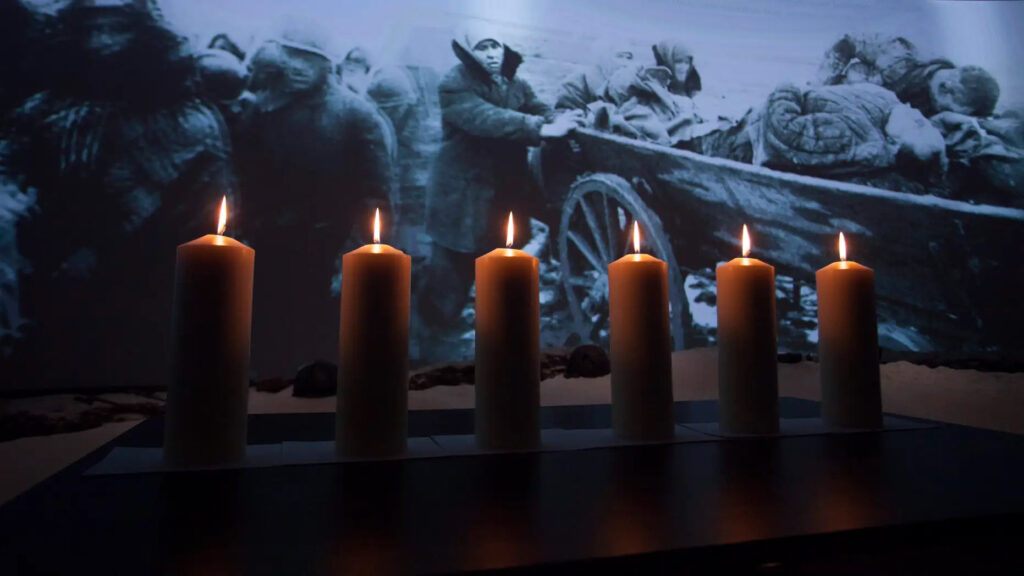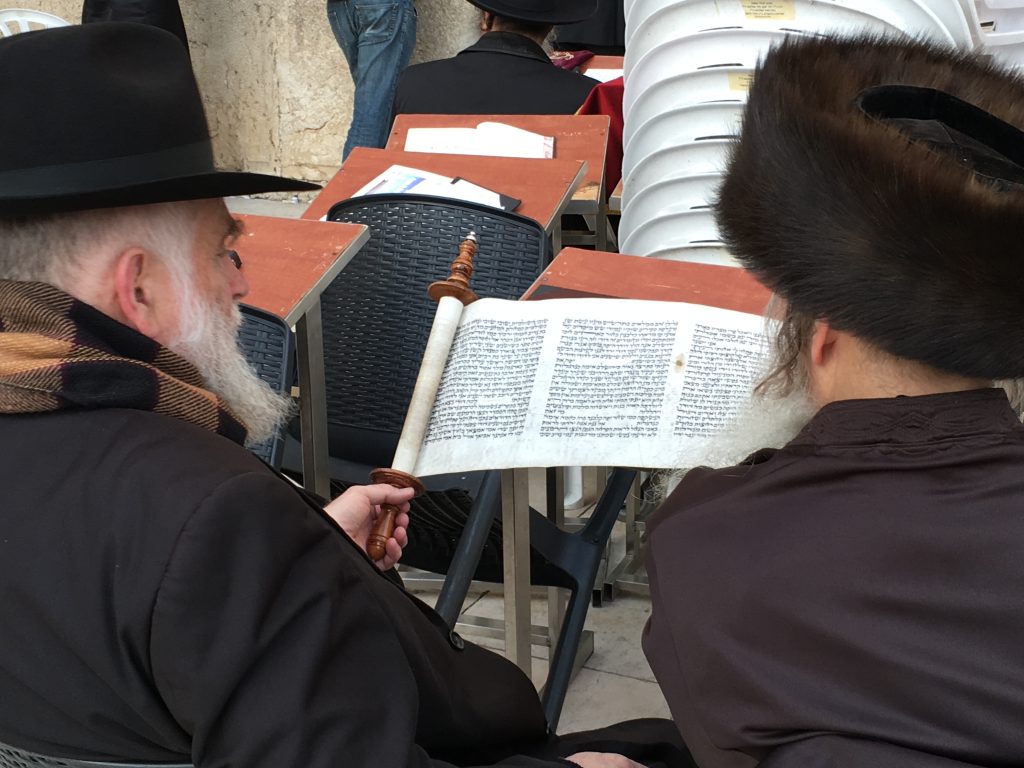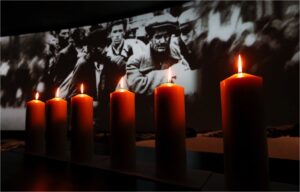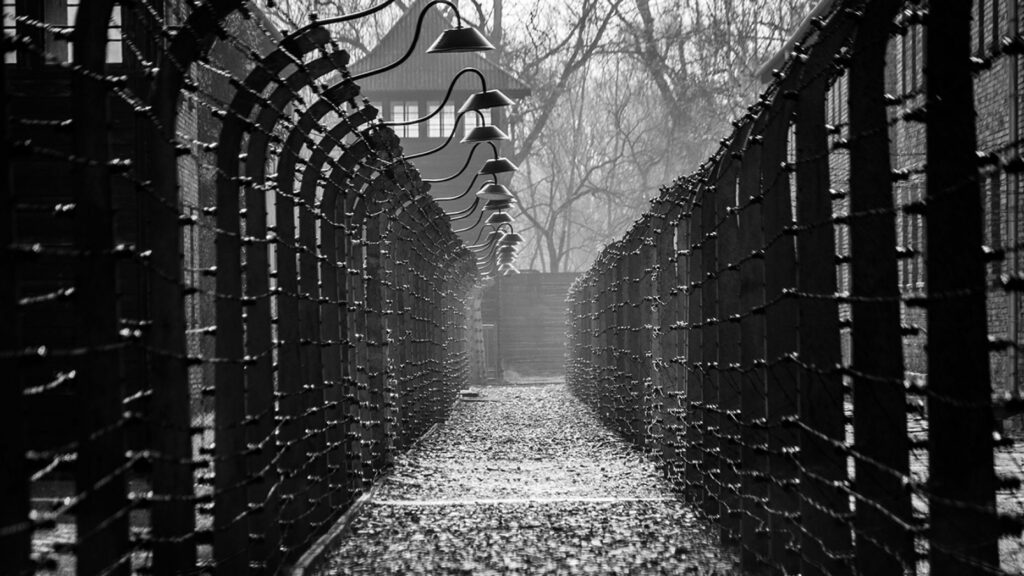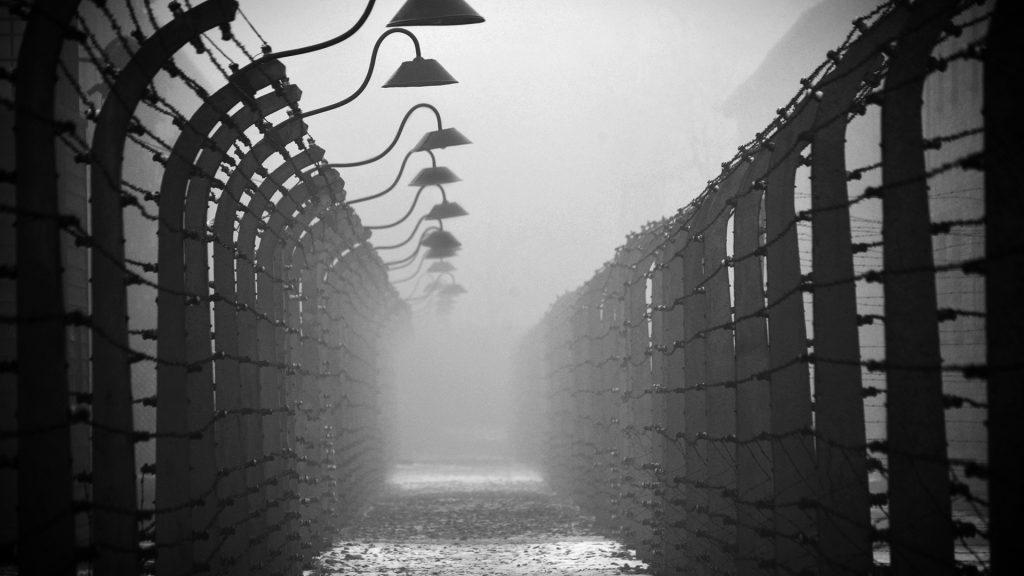 As unfathomable as the Holocaust was to those who entered the death camps at the end of WWII, it is all the more unthinkable even to contemplate the idea that the Holocaust never happened. Of all people, General Eisenhower understood that very well when he visited a death camp with General Patton after the war. When he spoke to members of Congress who had just visited Buchenwald in 1945, he said, “You saw only one camp yesterday. There are many others. Your responsibilities, I believe, extend into a great field, and informing the people at home of things like these atrocities is one of them… Nothing is covered up. We have nothing to conceal. The barbarous treatment these people received in the German concentration camps is almost unbelievable. I want you to see for yourself and be spokesmen for the United States.”
As unfathomable as the Holocaust was to those who entered the death camps at the end of WWII, it is all the more unthinkable even to contemplate the idea that the Holocaust never happened. Of all people, General Eisenhower understood that very well when he visited a death camp with General Patton after the war. When he spoke to members of Congress who had just visited Buchenwald in 1945, he said, “You saw only one camp yesterday. There are many others. Your responsibilities, I believe, extend into a great field, and informing the people at home of things like these atrocities is one of them… Nothing is covered up. We have nothing to conceal. The barbarous treatment these people received in the German concentration camps is almost unbelievable. I want you to see for yourself and be spokesmen for the United States.”
Furthermore, in a letter to General Marshall, also in 1945, he also wrote, “While I was touring the camp, I encountered three men who had been inmates and by one ruse or another had made their escape. I interviewed them through an interpreter. The visual evidence and the verbal testimony of starvation, cruelty and bestiality were so overpowering as to leave me a bit sick. In one room, where they were piled up twenty or thirty naked men, killed by starvation, George Patton would not even enter. He said he would get sick if he did so. I made the visit deliberately in order to be in a position to give first-hand evidence of these things if ever, in the future, there develops the tendency to charge these allegations merely to “propaganda.”
General Eisenhower somehow understood that the human race is such that if the Holocaust could be erased, minimized or denied, people would find ways to do it. He was very concerned about preserving the memory of such carnage for future generations. In spite of his efforts and that of others, Holocaust denial is a real thing in 2023.
Of all the people who spent years hunting Nazis post-WWII, Simon Wiesenthal understood that bringing those criminals to justice was critical but not enough. In his book The Sunflower, he said, “Discovering witnesses is just as important as catching criminals.”
Wiesenthal was so right! Especially as we move forward into the 21st century and both criminals and surviving victims are in their mid-90s. Soon, very soon, first-hand accounts of the horrors of the Holocaust will be a thing of the past, and the historical revisionists will be one step closer to making the Jewish catastrophe completely disappear from the annals of history.
So was Elie Wiesel in Night, the memoir of his time in Auschwitz, “For the survivor who chooses to testify, it is clear: his duty is to bear witness for the dead and for the living. He has no right to deprive future generations of a past that belongs to our collective memory. To forget would be not only dangerous but offensive; to forget the dead would be akin to killing them a second time,”
One of the most known Holocaust deniers is David Irving, who has written several books on the Third Reich and who has described the Holocaust as “limited,” “experimental,” “not systematic,” and “an invention of the allies.” He was exposed in a book by Jewish historian and antisemitism expert Deborah Lipstadt. In Denying the Holocaust, Lipstadt called Irving a Holocaust denier. This led to Irving suing her and Penguin Books. Irving was found by the judge to be an antisemite, a racist and a falsifier of the historical record. He lost, but unfortunately, that was just one battle against Holocaust denial that was a victory, but certainly not the war.
Why are people not trying to deny American slavery or the Russian Gulag? I am not in any way suggesting that we should deny these two other human tragedies or any others, but I am wondering why such focus is on the Jewish tragedy.
To be honest, I am not wondering why such focus is on trying to erase the Holocaust from history. Satan will invest all his efforts in trying to ridicule, minimize, ostracize and even demonize Jewish existence. He would be thrilled if he could convince some that the Holocaust never happened or was grossly exaggerated by the Allies or Jewish people to justify pushing for the creation of a Jewish state.
One way to fight Holocaust denial is through education: at home, at school, through movies and even in churches and mosques. Some have said that people talk too much about the Holocaust, but a survey taken two years ago shows otherwise.
- 63% of Millennials and Gen Z didn’t know that six million Jews died in the Holocaust.
- 48% of Millennials and Gen Z couldn’t name one single concentration camp.
- 56% of Millennials and Gen Z were unable to identify Auschwitz.
- 11% of Millennials and Gen Z believe that Jews caused the Holocaust.
- 49% of Millennials and Gen Z have seen Holocaust Denial on Social Networks.
Please do not tell me that we are speaking too much about the Holocaust after you consider the result of that survey. As first-hand accounts are becoming a rarity, the memory of the Holocaust is in our hands. Our generation is now responsible for continuing the fight for the preservation of historical truth and for the respect of the memory of the six million.
Holocaust Denial is pure evil, it is an insult to the victims and the survivors. When we see it, read it or even hear it, if we remain silent, we become the new bystanders of the 21st century. Bystanders at such a critical crossroads in human history as at any other time are becoming co-perpetrators.
“We must take sides. Neutrality helps the oppressor, never the victim. Silence encourages the tormentor, never the tormented.” (Elie Wiesel).
